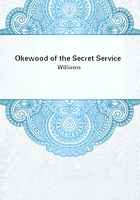
第76章
THE TWO DESERTERS
Desmond drove to Wentfield Station in an angry and defiant mood.
He was incensed against Francis, incensed against the Chief, yet, if the truth were told, most of all incensed against himself.
Not that he admitted it for a moment. He told himself that he was very hardly used. He had undergone considerable danger in the course of discharging a mission which was none of his seeking, and he had met with nothing but taunts from his brother and abuse from the Chief.
"I wash my hands of the whole thing," Desmond declared, as he paced the platform at Wentfield waiting for his train. "As Francis is so precious cocksure about it all, let him carry on in my place! He's welcome to the Chief's wiggings! The Chief won't get me to do his dirty work again in a hurry! That's flat!"Yet all the while the little gimlet that men call conscience was patiently drilling its way through the wall of obduracy behind which Desmond's wounded pride had taken cover. Rail as he would against his hard treatment at the hands of the Chief, he knew perfectly well that he could never wash his hands of his mission until Barbara Mackwayte had been brought back into safety. This thought kept thrusting itself forward into the foreground of his mind; and he had to focus his attention steadfastly on his grievances to push it back again.
But we puny mortals are all puppets in the hands of Fate. Even as the train was bearing Desmond, thus rebellious, Londonwards, Destiny was already pulling the strings which was to force the "quitter" back into the path he had forsaken. For this purpose Fate had donned the disguise of a dirty-faced man in a greasy old suit and a spotted handkerchief in lieu of collar... but of him presently.
On arriving at Liverpool Street, Desmond, painfully conscious of his unkempt appearance, took a taxi to a Turkish bath in the West End. There his first care was to submit himself to the hands of the barber who, after a glance at his client's bandaged head, muddy clothes and shaggy beard, coughed ominously and relapsed into a most unbarber-like reserve.
Desmond heard the cough and caught the look of commiseration on the man's face.
"I rather think I want a shave!" he said, weakly. "I rather think you do, sir!" replied the man, busy with his lather.
"... Had a nasty accident," murmured Desmond, "I fell down and cut my head...""We're used to that here, sir," answered the barber, "but the bath'll make you as right as, rain. W'y we 'ad a genel'man in 'ere, only lars' week it was, as 'adn't been 'ome for five days and nights and the coat mos tore off 'is back along with a bit of turn-up 'e'd 'at one o' them night clubs. And drunk I... w'y 'e went to bite the rubber, so they wos tellin' me! But, bless you, 'e 'ad a nice shave and a couple of hours in the bath and a bit of a nap; we got him his clothes as was tore mended up fine for 'im and 'e went 'ome as sober as a judge and as fresh as a daisy!"Desmond had it in his mind to protest against this material interpretation of his disreputable state; but the sight in the mirror of his ignominiously scrubby and battered appearance silenced him. The barber's explanation was as good as any, seeing that he himself could give no satisfactory account of the circumstances which had reduced him to his sorry pass. So Desmond held his peace though he felt constrained to reject the barber's offer of a pick-me-up.
From the shaving saloon, Desmond sent a messenger out for some clothes, and for the next three hours amused himself by exhausting the resources of the Turkish bath. Finally, about the hour of noon, he found himself, considerably refreshed, swathed in towel, reposing on a couch, a cup of coffee at his elbow and that morning's Daily Telegraph spread out before him.
Advertisements, so the experts say, are printed on the front and back of newspapers in order to catch the eye of the indolent, on the chance that having exhausted the news, they may glance idly over the front and back of the paper before laying it aside. So Desmond, before he even troubled to open his paper, let his gaze wander down the second column of the front page whence issue daily those anguishing appeals, mysterious messages, heart-rending entreaties and barefaced begging advertisements which give this column its characteristic name.
There his eye fell on an advertisement couched in the following terms:
"If Gunner Martin Barling, 1820th Battery, R.F.C., will communicate with Messrs. Mills & Cheyne, solicitors 130 Bedford Row, W. C., he will hear of something to his advantage.
Difficulties with the military can be arranged."Desmond read this advertisement over once and then, starting at the beginning, read it over again. Gunner Barling... the name conjured up a picture of a jolly, sun-burned man, always very spick and span, talking the strange lingo of our professional army gleaned from India, Aden, Malta and the Rock, the type of British soldier that put the Retreat from Mons into the history books for all time.
Advertisements like this; Desmond reflected dreamily, meant legacies as a rule; he was glad of it, for the sake of Barling whom he hadn't seen since the far-away days of Aldershot before the war.